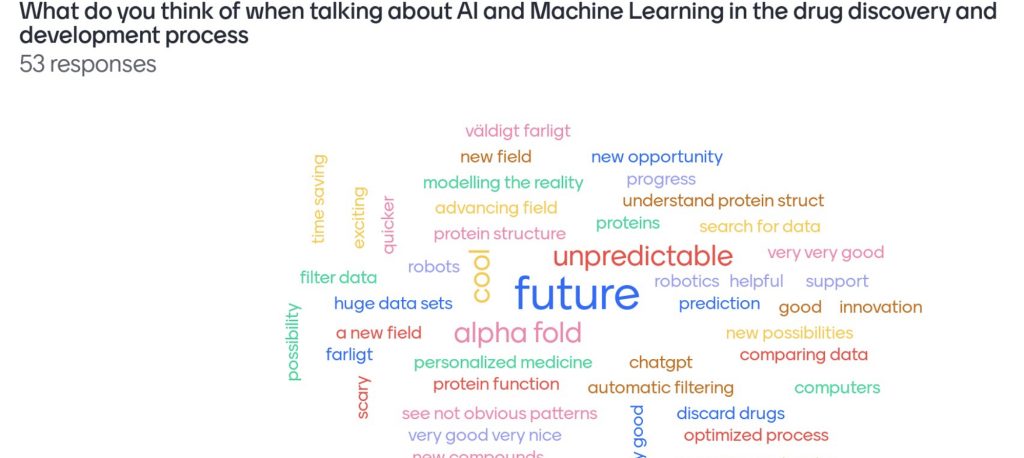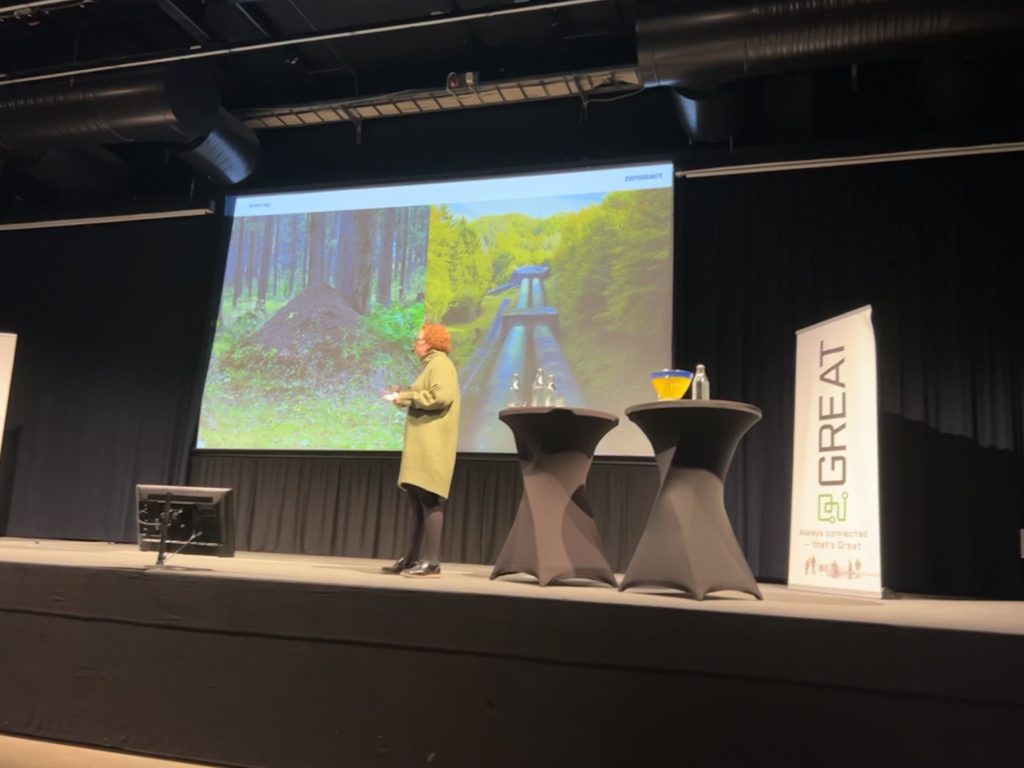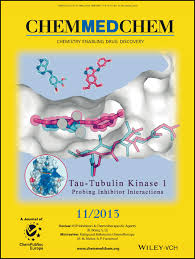
Critical Areas to consider for Getting AI right
Some learnings and reflections from the Datacenter forum – Several critical areas were highlighted for getting AI right. The importance of data governance was emphasized, ensuring that AI systems are built on high-quality, well-managed data. This includes implementing robust data privacy and security measures to protect sensitive information.
Ethical AI practices were also a key focus, stressing the importance of transparency, fairness, and accountability in AI development and deployment. Ensuring that AI systems are free from biases and operate in a fair and just manner was a significant point of discussion.
Scalability and infrastructure were identified as crucial areas, with discussions on the necessity of having scalable and efficient infrastructure to support AI workloads. This includes the use of advanced computing resources and energy-efficient technologies.
Collaboration and knowledge sharing were highlighted as essential for driving innovation and addressing the challenges associated with AI. Encouraging collaboration between different stakeholders, including academia, industry, and government, was seen as vital.
Lastly, the need for continuous learning and adaptation was stressed. AI technologies are rapidly evolving, and it is crucial to stay updated with the latest advancements and continuously adapt AI strategies to remain competitive and effective.
These insights provided valuable guidance on the critical areas that need to be addressed to ensure the successful implementation and utilization of AI technologies.
https://www.datacenter-forum.com/events/stockholm/2024

Jurypanel at Hack for Earth Foundation and Teelabs at SLUSH
The three winning startups from Korea winning the Hack for Earth Foundation Diploma and the Hack for Earth Medal at Slush Helsinki!
Congratulations 🥳🥳🥳
All three winning startups win a spot in Build for Earth Acceleration Program, to support them in their endeavor to launch globally.
Thank you for great collaboration TEELABS SBC Korea and Hyungil Chun!
Read more at https://www.linkedin.com/posts/ann-molin-89416191_slush2024-hackforearth-korea-activity-7267142018412277760-RJ5s/
MATIX – framtidens ledare

Matix är en ettårig magisterkurs på Handelshögskolan i Göteborg som kombinerar akademisk fördjupning med affärsutveckling i företag.
Företag får under året ett team av studenter som genomlyser företagets utvecklingsbehov. Som student genomför man kursuppgifter i det företag man är utsedd att ansvara för. Det personliga affärsmannaskapet utvecklas och tränas i teamet och på företaget.
De akademiska kurserna är innovation, strategi och förändringsledning. Parallellt faciliteras reflekterande ledarforum. Kort och gott – det framtidens ledare behöver vara mästare på!
Generative AI Swedish Industry cluster – Billion SEK investment to speed up the digitization of Swedish industry
Exciting news – A billion SEK investment is being launched within the research and innovation programme Advanced digitalisation which will accelerate the pace and strengthen Sweden’s position in innovation and industrial development.
Read more here: https://www.vinnova.se/en/news/2024/10/billion-dollar-investment-to-speed-up-the-digitization-of-swedish-industry/
Reach out to learn more!
Guest lecture at Lund University – the transformative role of AI and machine learning in drug discovery
The guest lecture at Lund University focused on the transformative role of AI and machine learning in drug discovery, with a particular emphasis on the AlphaFold model. The lecture began by discussing the importance of AI and machine learning in the drug discovery and development process, highlighting how these technologies are revolutionizing the field by enabling more efficient and accurate predictions of molecular structures and interactions.
AlphaFold, an advanced AI model developed by DeepMind. The model’s capabilities were demonstrated, showing how AlphaFold has dramatically improved the accuracy of protein structure predictions, which is crucial for understanding biological processes and developing new drugs. The impact of AlphaFold on accelerating drug discovery was emphasized, as it provides high-quality structural data that can be used to identify potential drug targets and design effective therapies.
The broader implications of AI and machine learning in the pharmaceutical industry were also discussed, including their potential to reduce the time and cost associated with drug development. Examples of successful AI-driven projects were shared, encouraging students to explore the possibilities of these technologies in their future careers.
Overall, the lecture provided valuable insights into the cutting-edge applications of AI and machine learning in drug discovery, inspiring the next generation of researchers and professionals in the field.
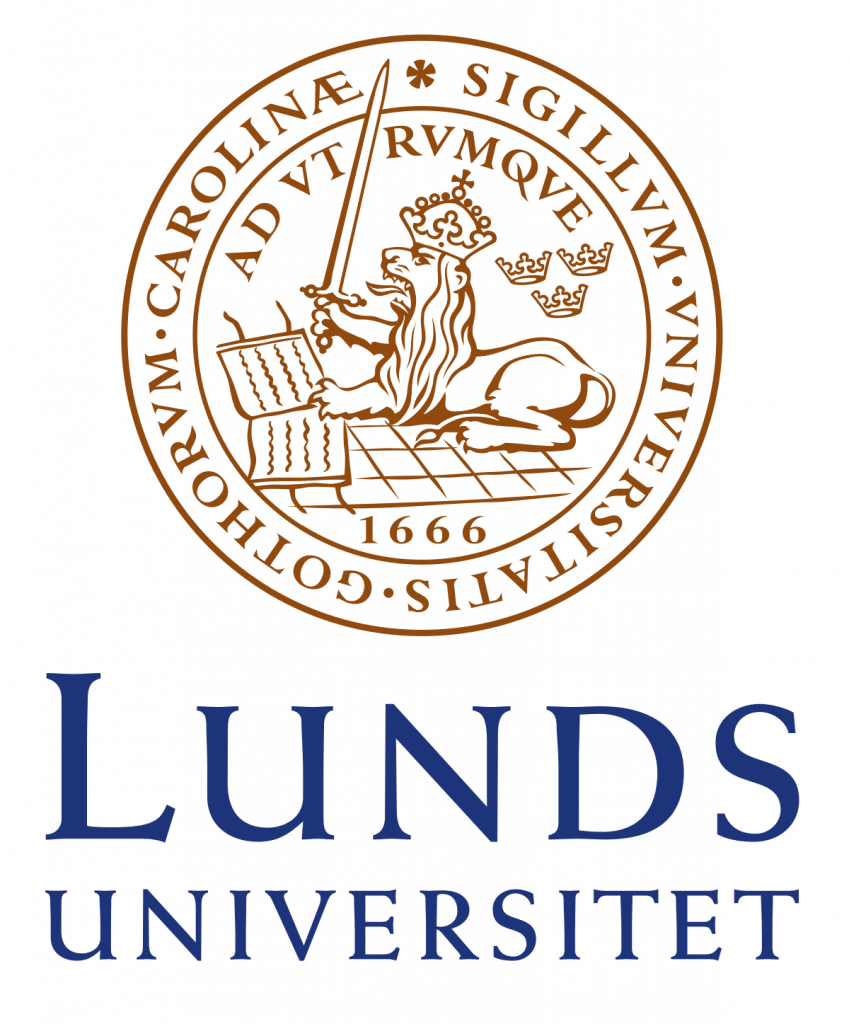
Quantum computing – what’s coming…
How we address and discuss quantum computing covers a range of important topics, reflecting the current state and future potential of this transformative technology.
One of the primary topics is the progress in developing quantum-resistant public-key cryptographic standards. Emphasizing the importance of migrating to post-quantum algorithms to ensure data security in the face of advancing quantum capabilities. Delving into the disruptive potential of quantum computing across various industries, with a particular focus on its applications in the pharmaceutical sector.
Another key area is the need for building internal expertise to differentiate between hype and genuine progress in quantum computing. Sharing learnings from working with this nascent technology is crucial for fostering a deeper understanding and practical application. Underscoring the significance of collaboration between academia, industry, and government to drive innovation and addressing the challenges associated with quantum computing.

A GREAT Pitch 2024
Leading an IT organization
Leading an IT organization involves a multifaceted approach that encompasses strategic planning, fostering a collaborative environment, and ensuring operational excellence. Some key aspects to drive:
Strategic Vision and Planning: Contributing to the strategic pillar of making IT a great place to work by creating a sense of belonging and community for all IT employees. Attracting talent globally and locally, promoting career progression, and highlighting why IT is a great place to work.
Collaboration and Engagement: Actively engaging with various stakeholders, internally and externally, to foster collaboration and innovation. Working with external consultants to understand the organisation and its complexities, setting up workshops and discussions to capture feedback and ideas.
Operational Excellence: Ensuring that the IT organization operates efficiently by implementing best practices and maintaining a unified view of IT. Including the set up of governance structures, connecting networks, and managing engagement activities.
Feedback and Continuous Improvement: A strong emphasis on capturing and acting on feedback from employees. This involves organizing events and communications to address the backlog of ideas and suggestions, and taking actions to improve the work environment and processes.
Sustainability and Innovation: Involving in and driving initiatives that promote sustainability and innovation within the IT organization. This includes exploring new technologies, optimizing energy consumption, and ensuring compliance with regulatory standards.
Leadership and Mentorship: As a leader, provide guidance and support to your team, helping them grow and succeed in their roles. Drive external branding and engagements, ensuring that the IT organization is recognized as a great place to work.
Leadership in the IT organization is characterized by a strategic vision, collaborative approach, and commitment to operational excellence and continuous improvement.
Compute clusters and energy consumption in a regulated environment
The topic “Compute clusters and energy consumption in a regulated environment” focuses on the implementation and management of high-performance computing systems, specifically those utilizing GPUs, to support advanced AI workloads. These systems are particularly relevant in regulated environments such as life sciences, and here addressed in settings where energy consumption and sustainability are critical concerns.
Compute clusters are composed of multiple nodes, each equipped with powerful GPUs, designed to deliver exceptional computational performance. The architecture of a compute cluster includes scalable units that can be configured to meet the specific needs of different applications. Each unit consists of several GPU systems, interconnected to ensure high-speed data transfer and efficient resource utilization.
One of the key challenges in deploying compute clusters in regulated environments is managing energy consumption. These systems require significant power to operate, and their energy efficiency is a critical factor in their overall sustainability. The design of compute clusters includes features such as direct liquid cooling and the use of renewable energy sources to minimize their environmental impact. Additionally, the reuse of waste heat generated by these systems for residential heating or energy storage further enhances their sustainability.
In a regulated environment, it is essential to ensure that the deployment and operation of compute clusters comply with relevant regulations and standards. This includes adhering to guidelines on energy efficiency, data security, and environmental impact. The governance and control over the assets, as well as the delegation of authority and budget management, are crucial aspects of managing compute clusters in such settings.
Overall, the implementation of compute clusters in regulated environments requires careful planning and consideration of energy consumption, sustainability, and compliance with regulatory standards. By leveraging advanced technologies and innovative solutions, organizations can harness the power of compute clusters while minimizing their environmental footprint and ensuring regulatory compliance.
DIPS 1000+ Inno Wave, Korea
Presenting at the DIPS 1000+ Inno Wave in Korea. Contributing to the open innovation and collaboration efforts between companies and start-ups.Key points highlighted:
The commitment to open innovation offering access to scientific expertise and world-class infrastructure. Emphasizing the importance of collaboration in driving innovation and addressing the specific needs of the life sciences sector.
Outlining various collaboration types, including joint R&D, adopting solutions, M&A, acquisition of new technology, new product development, talent acquisition, and investments. Discussing the desired technology and collaboration tasks, focusing on areas such as Bio Health, AI and Big Data, and Quantum Technology.
Engaging in discussions with potential partners, exploring opportunities for collaboration and innovation.
Data centers of the future – LLMs for everyone
Data centers of the future – LLMs for everyone – focusing on the advancements and future prospects of data centers, in the context of supporting large language models (LLMs) and making them accessible to a broader audience. The topic explores how data centers are evolving to handle the increasing computational demands of LLMs, which are essential for various AI applications, especially in life sciences.
Key aspects of this topic include:
Infrastructure Enhancements: The need for robust and scalable infrastructure to support the training and deployment of LLMs. This involves advancements in hardware, such as GPUs and TPUs, as well as improvements in data storage and networking capabilities.
Energy Efficiency: Addressing the energy consumption challenges associated with running large-scale data centers. This includes exploring sustainable energy sources and optimizing energy usage to reduce the environmental impact.
Accessibility and Democratization: Making LLMs accessible to a wider range of users and organizations. This involves developing user-friendly interfaces, providing cloud-based solutions, and offering affordable access to powerful AI tools.
Security and Privacy: Ensuring the security and privacy of data processed by LLMs. This includes implementing robust data protection measures and adhering to regulatory requirements to safeguard sensitive information.
Innovation and Collaboration: Encouraging collaboration between industry, academia, and government to drive innovation in data center technologies and AI applications. This involves sharing best practices, conducting joint research, and fostering an ecosystem of innovation.
Overall, the topic highlights the importance of evolving data centers to meet the growing demands of AI technologies and making these advancements accessible to everyone.
Into the Future: Artificial Intelligence in Business Development
Artificial Intelligence in Business Development aiming at empowering business development with generative AI tools.
Prompt Engineering: The importance of prompt engineering in achieving effective results with tools like Copilot.
Confidentiality Assurance: Concerns around confidentiality using AI for sensitive business development tasks. Data governance and the capability to respect privacy settings, ensuring that sensitive information remains secure.
Training and Adoption: The need for developing training programs for business development on effective Generative AI tooling usage.
Overall, leveraging AI technologies to enhance business development efforts, provides valuable insights and practical strategies for integrating AI tools into business processes.
Quantum Computing in Life Sciences
Quantum computing is an emerging technology that promises to revolutionize various industries by solving complex problems that are currently beyond the reach of classical computers. The initiative “Quantum Computing – the future is here, how do we use it?!” explores how we can harness this powerful technology for practical applications.
Quantum computing operates on the principles of quantum mechanics, using quantum bits or qubits, which can represent both 0 and 1 simultaneously through a phenomenon known as superposition. This allows quantum computers to process a vast number of possibilities at once, making them exceptionally powerful for certain types of computations.
One of the key areas where quantum computing is expected to have a significant impact is in drug discovery and development. By simulating molecular interactions at a quantum level, researchers can identify potential drug candidates more quickly and accurately than with classical methods. This could lead to faster development of new medications and treatments.
Another promising application is in materials science. Quantum computers can model the properties of new materials at an atomic level, enabling the design of materials with specific characteristics for use in various industries, from electronics to renewable energy.
Quantum computing also holds potential for optimizing complex systems, such as supply chains and financial portfolios. By analyzing vast amounts of data and exploring numerous scenarios simultaneously, quantum algorithms can identify optimal solutions that would be infeasible for classical computers to compute.
Despite its potential, there are still significant challenges to overcome before quantum computing can be widely adopted. These include developing stable and scalable qubit systems, error correction methods, and practical quantum algorithms. However, ongoing research and investment in this field are rapidly advancing our understanding and capabilities.
In summary, quantum computing is poised to transform various sectors by providing unprecedented computational power. As we continue to develop and refine this technology, it will be crucial to explore and implement practical applications that can harness its full potential for innovation and growth.
If you have any specific questions or need more details on any of these points, feel free to reach out!
COO Digital Strategy Visioning
A COO Digital Strategy Visioning, a significant aim at developing a comprehensive digital strategy. Bringing together key stakeholders exploring new opportunities and technologies that could enhance operational efficiency and service delivery.
Sharing of successful case studies and a working model to guide the discussions. Participants engaging in brainstorming sessions, focusing on digital opportunities such as advanced analytics, cloud platforms, and AI-driven solutions. Collaborative exercises allowing attendees to tackle specific challenges and generate innovative ideas.
Successfully capturing a wealth of ideas and feedback, analyzed and summarized for further refinement. A significant step towards developing a digital strategy that leverages new technologies to work smarter, better, and quicker, ultimately providing improved services.
How healthcare and AI merge together
In the healthcare sector, generative AI and other AI technologies are poised to bring transformative changes in several key areas:
Personalized Medicine: Generative AI can analyse vast amounts of patient data, including genetic information, to create personalized treatment plans. This approach can lead to more effective therapies tailored to individual patients’ needs.
Drug Discovery and Development: AI technologies can significantly speed up the drug discovery process by predicting how different compounds will interact with biological targets. Generative AI can design new molecules with desired properties, reducing the time and cost associated with bringing new drugs to market
Medical Imaging and Diagnostics: AI can enhance the accuracy of medical imaging by identifying patterns and anomalies that may be missed by human eyes. Generative AI can also create synthetic medical images to train diagnostic models, improving their performance and reliability
Virtual Health Assistants: AI-powered chatbots and virtual assistants can provide patients with instant access to medical information, answer health-related questions, and even assist in managing chronic conditions. These tools can improve patient engagement and reduce the burden on healthcare providers
Operational Efficiency: AI can optimize administrative tasks, such as scheduling, billing, and resource allocation, allowing healthcare professionals to focus more on patient care. Generative AI can also automate the creation of clinical documentation, saving time and reducing errors
Predictive Analytics: AI technologies can analyse historical data to predict future health trends and outcomes. This capability can help healthcare providers anticipate and prevent potential health issues, leading to better patient outcomes and more efficient use of resources
Overall, the integration of generative AI and other AI technologies in healthcare holds the promise of revolutionizing the industry by enhancing patient care, accelerating research and development, and improving operational efficiency.
Investment landscape in a life science sector
Key investment opportunities that are driving innovation and growth
Digital Business Initiatives: Investments in digital business transformation, including customer experience (CX), advanced analytics, and cloud platforms, are significant. These areas have consistently attracted funding due to their potential to enhance operational efficiency and drive growth.
Cyber/Information Security: As the life sciences sector increasingly relies on digital technologies, ensuring the security of data and systems has become paramount. Investments in cybersecurity are crucial to protect sensitive information and maintain trust.
Artificial Intelligence and Machine Learning: AI and ML technologies are being leveraged to accelerate drug discovery, optimize clinical trials, and improve patient outcomes. These technologies offer substantial opportunities for innovation and efficiency in the life sciences sector.
Precision Medicine: Advances in precision medicine, which tailors treatments to individual patients based on genetic, environmental, and lifestyle factors, are transforming healthcare. Investments in this area are expected to grow as the demand for personalized healthcare solutions increases.
Quantum Computing: Quantum computing holds the potential to revolutionize various aspects of life sciences, including drug discovery and materials science. Companies are exploring quantum applications to solve complex problems that are currently beyond the reach of classical computers.
Sustainability and Green Technologies: Investments in sustainable practices and green technologies are becoming increasingly important. This includes efforts to reduce the environmental impact of manufacturing processes and develop eco-friendly products.
VITALIS and how sectors converge and to drive innovations

HealthTech Award celebrates healthtech innovations that make a difference for people’s lives. The award recognizes innovative companies, based in the Nordics or Baltics, providing a healthtech solution or product that has a proven positive impact on healthcare, prevention, prediction, health and/or quality of life.
This is the 4th edition of the award by GREAT, Vitalis and Sahlgrenska Science Park, recognising innovative companies providing a healthtech solution or product that has a proven positive impact on healthcare, prevention, prediction, health and/or quality of life.
AI in Search and Evaluation for Business Development
Utilizing AI in business development allows organizations to refine their marketing strategies, expand market share, discover new markets, and make informed product development decisions. Exploring AI’s distinctive value proposition for business development, showcasing where AI-driven technologies are making the most significant impact present how data-driven businesses are leveraging AI for innovation and sustainable growth.
Stories to learn more
Trusted Research Environment for Advanced Health AI
Roundtable expert pool Interdisciplinary Expert Pool addressing specific questions and challenges in AI development
A roundtable expert pool, to discuss the results of the Interdisciplinary Expert Pool for NLU project, involving collaboration between humanities and social sciences researchers, civil society representatives, and addressing specific questions and challenges in AI development.
The development of large language models prompts more challenges than purely technological ones. Questions of data, representation, fairness, equality, and ethics are implicit and relevant to all projects and workstream in an interdisciplinary setting.

A Digital Platform for Precision Recycling of Medtech Waste
The increasing volume of medical technology (medtech) waste poses significant environmental challenges. To address this issue, a Digital Platform for Precision Recycling of Medtech Waste can be proposed. An innovative platform which aims to enhance the recyclability of medical product waste by leveraging advanced technologies such as artificial intelligence (AI) and data analytics.
The primary objective of the digital platform would be to improve the efficiency and effectiveness of recycling processes for medtech waste. By utilizing AI and data analytics, the platform will enable precise identification, sorting, and processing of various types of medical waste, ensuring that valuable materials are recovered and reused while minimizing environmental impact.
Key Features:
- AI-Powered Identification and Sorting: The platform will employ AI algorithms to accurately identify and categorize different types of medtech waste. This will facilitate the sorting process, ensuring that recyclable materials are separated from non-recyclable ones.
- Data-Driven Decision Making: By analyzing data from various sources, the platform will provide insights into the most effective recycling methods for different types of medtech waste. This will help optimize recycling processes and improve overall efficiency.
- Real-Time Monitoring and Reporting: The platform will offer real-time monitoring of recycling operations, allowing stakeholders to track progress and identify areas for improvement. Detailed reports will be generated to provide transparency and accountability.
- Collaboration and Integration: The platform will facilitate collaboration between various stakeholders, including healthcare providers, recycling companies, and regulatory bodies. It will also integrate with existing waste management systems to ensure seamless operations.
Benefits:
- Environmental Impact: By improving the recyclability of medtech waste, the platform will help reduce the environmental footprint of the healthcare industry. This will contribute to sustainability goals and support the transition to a circular economy.
- Cost Savings: Efficient recycling processes will lead to cost savings for healthcare providers and recycling companies. By recovering valuable materials, the platform will create economic opportunities and reduce the need for raw materials.
- Regulatory Compliance: The platform will help healthcare providers and recycling companies comply with regulatory requirements related to medical waste management. This will ensure that operations are conducted in a safe and environmentally responsible manner.
Conclusion: A Digital Platform for Precision Recycling of Medtech Waste would represent a significant step forward in addressing the environmental challenges posed by medical technology waste. By leveraging advanced technologies and fostering collaboration, the platform would enhance the efficiency and effectiveness of recycling processes, contributing to a more sustainable and circular healthcare industry.

Sustainability technologies and VC networking for pharma

In recent years, the pharmaceutical industry has increasingly focused on sustainability technologies to address environmental challenges and improve operational efficiency. These technologies encompass a wide range of innovations, from green chemistry and eco-friendly manufacturing processes to sustainable supply chain management and waste reduction strategies. By adopting these technologies, pharmaceutical companies aim to minimize their environmental footprint, reduce resource consumption, and enhance the overall sustainability of their operations.
One of the key areas of focus is the development and implementation of green chemistry principles. This involves designing chemical processes and products that reduce or eliminate the use and generation of hazardous substances. By prioritizing green chemistry, pharmaceutical companies can create safer and more sustainable products while also reducing the environmental impact of their manufacturing processes.
Another important aspect of sustainability in the pharmaceutical industry is the adoption of eco-friendly manufacturing processes. This includes the use of renewable energy sources, such as solar and wind power, to reduce greenhouse gas emissions and reliance on fossil fuels. Additionally, companies are exploring innovative technologies for water and energy conservation, waste management, and recycling to further enhance their sustainability efforts.
In parallel with the adoption of sustainability technologies, the pharmaceutical industry is also actively engaging in venture capital (VC) networking to drive innovation and investment in these areas. VC firms play a crucial role in providing the necessary funding and support for startups and emerging companies that are developing cutting-edge sustainability technologies. By fostering strong relationships with VC firms, pharmaceutical companies can access new technologies, collaborate on research and development projects, and accelerate the commercialization of sustainable solutions.
VC networking also facilitates the exchange of knowledge and expertise between industry stakeholders, enabling the identification of new opportunities and the development of innovative business models. Through strategic partnerships and collaborations, pharmaceutical companies can leverage the expertise of VC firms to navigate the complex landscape of sustainability technologies and drive meaningful progress in their sustainability initiatives.
Overall, the integration of sustainability technologies and VC networking is essential for the pharmaceutical industry to achieve its sustainability goals and remain competitive in an increasingly environmentally conscious market. By embracing these approaches, pharmaceutical companies can not only reduce their environmental impact but also create long-term value for their stakeholders and contribute to a more sustainable future.
Talentattraction – Investment opportunities in a Swedish biotech and digital health arena
Initiatives aimed at attracting talent and exploring investment opportunities within the Swedish biotech and digital health sectors is key. Efforts have focused on creating a conducive environment for innovation and collaboration, leveraging Sweden’s strong position in these fields.
A key initiative is Talent Attraction. Attracting top talent and fostering partnerships with health tech companies. Identifying key areas: Medical device technologies, quantum computing, and continuous manufacturing.
Investment opportunities in the Swedish biotech and digital health arena are provided. Our efforts include identifying and promoting investment prospects, facilitating networking opportunities, and supporting the growth of innovative companies in these sectors. By creating a supportive ecosystem, we aim to drive advancements in healthcare and digital health technologies, ultimately contributing to improved patient outcomes and economic growth.

Healthdata and governmental affairs
In the realm of Healthdata, we have led several key initiatives aimed at leveraging data as a competitive asset and catalyzing innovation. One of our significant projects was the creation of the foundations of a Marketplace for data to enable businesses to create and capture value utilizing data. This initiative involved rallying collaboration partners from various sectors, including academia, education, and industry, to achieve a common vision of non-competitive data sharing and ecosystem building.
In addition, we have driven efforts to optimize information-driven healthcare. Recognizing the future demands on healthcare due to changing demographics, we have focused on utilizing digitalization to support all levels of healthcare. Our initiatives have aimed at creating more efficient care processes, increasing patient involvement, enabling early detection of health issues, and providing faster and more accurate diagnoses through digital decision support.
We have also worked on reducing administrative tasks and opening new research opportunities by automating routine tasks and making health data accessible. In the area of governmental affairs, we have been instrumental in positioning organizations within key strategic alliances and fostering partnerships that support innovation. Our efforts included driving IT initiatives that required multi cross-functional governance and networking within the ecosystem to position IT departments as the preferred partner of choice. We also supported the Governmental Affairs in positioning organization within strategic alliances, contributing to the broader objectives of how pharma business development and innovation units operates.

Femtech Innovation – Hack Her Health
Spearheading the HackHERHealth initiative to address the significant gender disparities in healthcare, a must to drive innovation! Recognizing that women represent only 41% of clinical trial participants, aiming to bridge the gap in gender-specific healthcare. Historically, medical solutions and devices have been designed based on male physiology, leading to increased risks and decreased effectiveness for women. Women face a 50-75% higher risk of adverse drug reactions and unique challenges in cardiovascular disease, underscoring the need for tailored medical research and treatment approaches specific to women’s health.
Under my leadership, the initiative focused on various challenges such as neurodiversity, endometriosis, obesity, and more. Working closely with the team to define and prioritize these challenges, ensuring that we developed effective solutions.
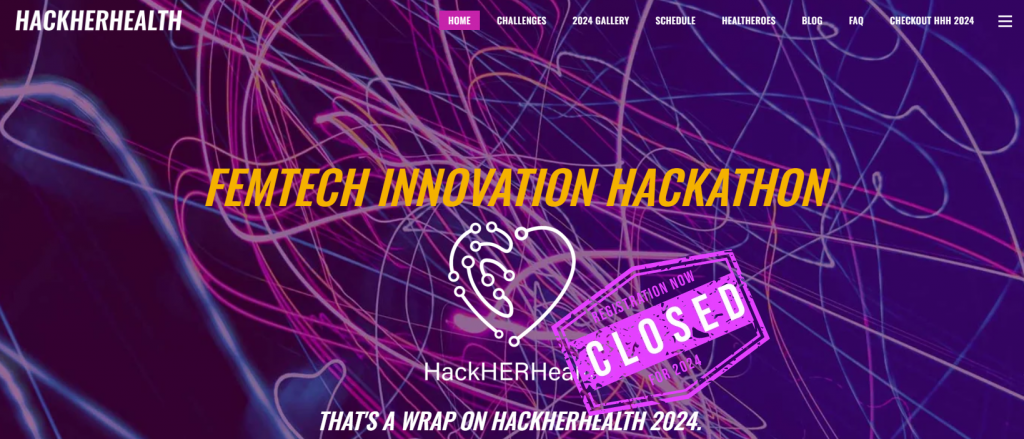
NVIDIA Computational capability in a biotech setting – whats the future of LLMs in our sector
NVIDIA’s computational capabilities are revolutionizing the biotech sector, providing unprecedented power and efficiency for various applications. In a biotech setting, NVIDIA’s supercomputers, such as the “super-pod” capabilities, are being utilized to accelerate drug discovery and development. For instance, Bristol-Myers Squibb (BMS) has an NVIDIA super-pod capability and is conducting an AI co-lab with Vant AI to accelerate Molecular Glue Drug Discovery as small molecule therapeutics.
One notable example is the collaboration between the Novo Nordisk Foundation and NVIDIA to launch a visionary AI research center in Denmark. This center, funded by a $100 million investment, aims to elevate Denmark’s researchers and innovators to the next level by leveraging one of the world’s most powerful AI supercomputers. Additionally, NVIDIA’s Tokyo-1 supercomputer is being used by leading Japanese pharmaceutical companies to accelerate drug discovery, with plans to make it accessible to medical-device companies and startups.
The future of Large Language Models (LLMs) in the biotech sector is incredibly promising. NVIDIA has introduced the “NVIDIA AI Foundations” suite of cloud services, which includes the NVIDIA NeMo language service and the NVIDIA Picasso image, video, and 3D service. These solutions enable businesses to build custom generative AI applications for various use cases, such as intelligent chat, customer assistance, professional content creation, and digital simulation3. By utilizing these services, biotech companies can develop tailored LLMs and generative AI models to enhance their research and development processes.
Generative AI is set to become a cornerstone in drug discovery and design, offering unprecedented efficiency and innovation. For example, AI tools can sift through complex biological data to identify potential biomarkers for diseases, aiding in the development of targeted therapies4. Additionally, generative AI can help identify patient subgroups most likely to benefit from a new drug, leading to more effective and personalized clinical trials.
Overall, NVIDIA’s computational capabilities and the future of LLMs in the biotech sector are poised to drive significant advancements in drug discovery, personalized medicine, and overall healthcare innovation. By leveraging these technologies, biotech companies can accelerate their research and development efforts, ultimately improving patient outcomes and transforming the healthcare landscape.

Insights into CHALMERS IT Program Board – whats the future of tech and digital!
As a member of the CHALMERS IT Program Board, I have gained valuable insights into the future of technology and digital advancements. The board, which includes representatives from various industries such as automotive, finance, and mobile, as well as professors and IT subject matter experts, meets twice a year to provide input on the program for students, PhD students, and post-docs in IT.
One of the key focuses of the board is to ensure that the IT program at Chalmers University of Technology remains at the forefront of technological innovation. This involves integrating cutting-edge technologies such as AI, big data, and machine learning into the curriculum, as well as fostering collaboration between academia and industry.
The future of tech and digital is incredibly promising, with advancements in areas such as quantum computing, digital health, and smart cities. The board is committed to preparing students for these emerging fields by providing them with the necessary skills and knowledge to thrive in a rapidly evolving digital landscape.
In addition to curriculum development, the board also emphasizes the importance of industry partnerships. By connecting students with leading companies and organizations, we aim to create a pipeline of talent that can drive innovation and address complex challenges in various sectors.
Overall, the CHALMERS IT Program Board is dedicated to shaping the future of technology and digital by fostering a collaborative and forward-thinking environment. Through our efforts, we hope to equip the next generation of IT professionals with the tools they need to succeed and make a meaningful impact in the world.

Whats up at SLUSH? The worlds largest gathering of VC
SLUSH 2023 was a vibrant and dynamic event that brought together key stakeholders in the healthcare start-up ecosystem. The event, held in Helsinki, focused on fostering collaboration and innovation to address complex health and healthcare challenges. The partnership between AstraZeneca and SLUSH aimed to create groundbreaking partnerships, drive diversity and inclusion, and encourage the development of purpose-driven companies in the healthcare sector.
Key highlights included the SLUSH 100 Startup Competition, where entrepreneurs had the chance to win a €1 million investment from General Catalyst and Cherry Ventures. The event also featured workshops, mentoring sessions, and networking opportunities, providing a platform for aspiring entrepreneurs to connect with industry leaders and investors.
Overall, SLUSH 2023 was a significant event for the European innovation landscape, emphasizing the importance of collaboration and innovation in driving the future of healthcare.

AI advisory board in regional healthcare
As a member of the AI advisory board in regional healthcare, I play a pivotal role in leveraging AI, big data, and genomics technology to enhance healthcare capabilities. My work involves collaborating with leading healthcare organizations and innovators to improve the standard of care for patients, particularly in areas such as diabetes, heart disease, and cancer.
One of my key contributions is the development of digital platforms that facilitate effective ecosystem collaboration. These platforms enable seamless service delivery and execution of cross-organizational projects, fostering a collaborative environment for growth companies in biotechnology, digital health, and more.
My efforts are also focused on supporting start-ups and innovation centers, providing them with access to world-class infrastructure and expertise. This includes initiatives like the 360° approach in developing and supporting start-ups, as well as the creation of mobile applications for specific healthcare needs.
Overall, my work on the AI advisory board is instrumental in driving innovation and improving healthcare outcomes in the region. By bringing together relevant stakeholders and leveraging advanced technologies, I help reimagine the healthcare ecosystem and deliver valuable benefits to patients.
Venture Capital build in a biotech start-up forum
The current status of venture capital in the biotech start-up area shows a dynamic and evolving landscape. The biotech sector is experiencing a recovery after a funding downturn in 2022, with venture capital investments reaching $9.2 billion in Q2 2024. This rebound is driven by promising fields such as anti-obesity drugs and AI in drug discovery, which have attracted increased interest from large pharmaceutical companies.
The BioVentureHub, established in 2014, is a notable example of a successful venture in this space. It operates as a unique public-private partnership innovation model, co-locating external companies and academic groups with AstraZeneca. This setup provides easy access to world-class infrastructure and expertise, fostering a collaborative environment for growth companies in drugs, devices/medtech, diagnostics, and digital health.
Overall, the biotech start-up area is benefiting from increased coordination and influence in R&D, with a focus on innovation and emerging science and health tech. This vibrant ecosystem is well-positioned to support the bold ambitions of companies in the pharmaceutical sector.
IT Leadership and how the ecosystem evolves and attract the partners of the future
IT Leadership plays a crucial role in shaping the future of technology and business. As the digital landscape continues to evolve, IT leaders must adapt and innovate to stay ahead. The ecosystem of IT leadership is dynamic, involving collaboration across various departments and external partners to drive greater business value.
One key aspect of this evolution is the development of digital platforms that facilitate effective ecosystem collaboration. These platforms enable seamless service delivery, execution of cross-organizational projects, and the generation of start-ups. By leveraging digital technologies, IT leaders can catalyze innovation and drive exploration of new science and technology horizons12.
To attract the partners of the future, IT leaders must focus on building pathways to external services and capabilities that are not yet available internally. This involves defining ecosystem investments that go beyond traditional business development and include opportunities in digital health, commercialization, and more34.
In summary, IT leadership is about fostering an environment of collaboration and innovation, ensuring that the organization is well-equipped to meet future challenges and seize new opportunities. By doing so, IT leaders can attract and retain valuable partners, driving the organization towards sustained success.
Board membership and steering of investments in a digital healthcare business evolvement
Board membership and steering of investments play a crucial role in the evolution of digital healthcare businesses. The board members are responsible for providing strategic direction, ensuring effective governance, and overseeing the allocation of resources to various projects. Their expertise and guidance help in making informed decisions that drive innovation and growth in the digital healthcare sector.
In the context of digital healthcare, investments are directed towards the development and implementation of advanced technologies, such as electronic health records (EHRs), telemedicine platforms, and mobile health applications. These investments aim to enhance patient care, improve operational efficiency, and ensure data security and privacy. The board’s role in steering these investments involves evaluating potential opportunities, assessing risks, and ensuring that the investments align with the organization’s overall goals and objectives.
Effective board governance and strategic investment decisions are essential for the successful transformation of healthcare services in the digital age. By leveraging their collective expertise, board members can help digital healthcare businesses navigate the complexities of the industry and achieve sustainable growth.
Healthcare data and quality management for the future of healthcare
The future of healthcare is poised for a transformative shift, driven by advancements in healthcare data and quality management. As we move forward, the integration of digital therapeutics (DTx) and artificial intelligence (AI) will play a pivotal role in enhancing patient-centric care. DTx, which leverages AI, extended reality, and cloud technologies, is set to improve clinical outcomes by providing personalized programs to patients anytime and anywhere. This approach is already making significant strides in addressing unmet needs in areas such as mental health and oncology.
Moreover, the implementation of robust data management practices is crucial for ensuring the quality and reliability of healthcare data. The new Study Delivery Optimization Model, for instance, emphasizes the importance of data quality managers who provide technical expertise and oversee vendor activities from study inception to database lock. This model has demonstrated its value by streamlining data management activities and enhancing the overall quality of clinical studies.
In addition, the convergence of healthcare with technology, data, and analytics is set to revolutionize the industry. Digital health initiatives,, aim to transform healthcare outcomes by leveraging longitudinal and multimodal global data. These initiatives focus on enhancing patient and healthcare experiences, augmenting outcomes through earlier diagnosis and patient solutions, and reimagining healthcare through end-to-end digital care pathways.
As we look to the future, the collaboration between various stakeholders, including industry, academia, and healthcare providers, will be essential. Establishing the right platforms for data sharing and developing sustainable business models will drive innovation and improve disease prevention efforts both locally and globally. By prioritizing quality data and embracing technological advancements, the healthcare industry can ensure better patient outcomes and a more efficient healthcare system.
What do you think of when talking about AI in the Drug discovery and drug development process?
Tech stack, Transformers and HealthTech
World Investment Trends
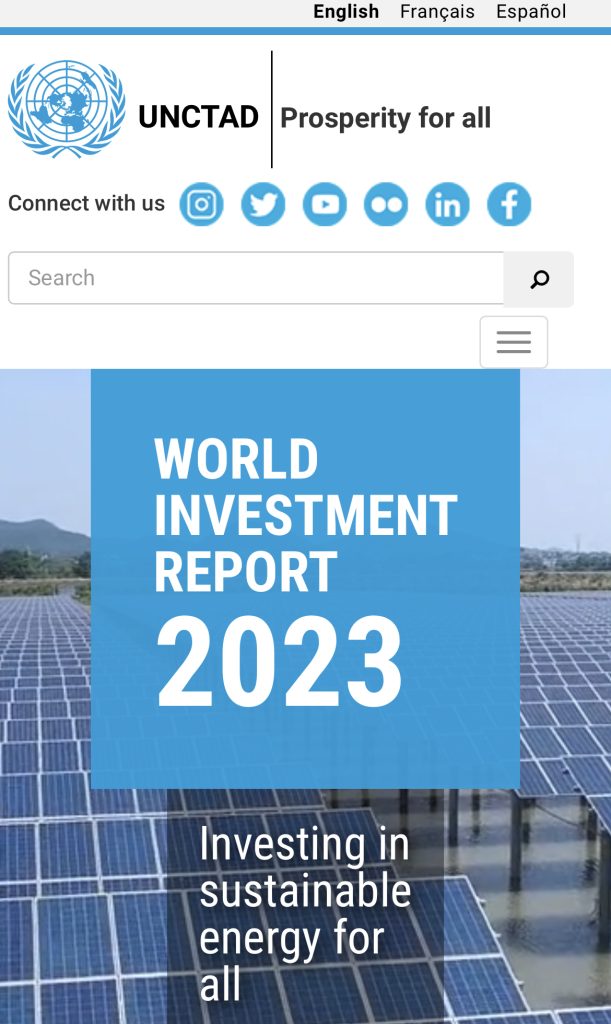
https://unctad.org/publication/world-investment-report-2023
Take a look at the current investment Trends, how we highlight our strengths and opportunities within them. A good way to leverage the way we synchronize knowledge and willingness to invest.
Biotech and Business drivers
Reflecting on AI with the Life Science experts of the future
Search & Evaluation and Due Diligence – in a Digital Life Science area
Build for 7 years ahead
Start small, think big, scale fast. This can. Be applied in projects you do, or businesses you try, and in many other areas as well of course.
How to scale a biotech company from first seed to a globally reaching, growing and profitable situation, was an interesting discussion to have. In addition with the luxury to have it over a coffee and with local partners.
AI as a driver for future business models in Medtech and Pharma
A day focused on innovation, in an Healthcare setting and with the opportunities and challenges with the development of Generative Pre-trained Transformers (GPTs) and AI models behind.
Around digital health technologies. How to improve data analytics, and enhance the patient journey across the continuum of care.
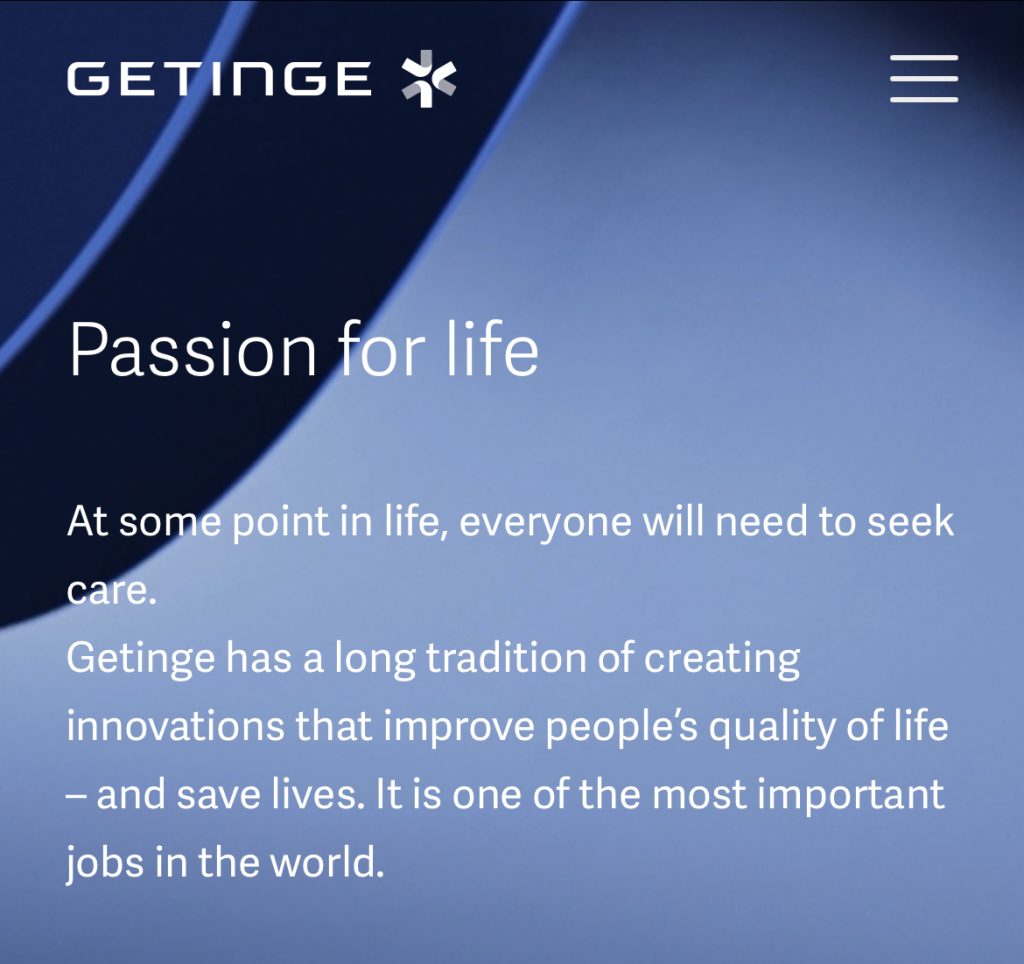
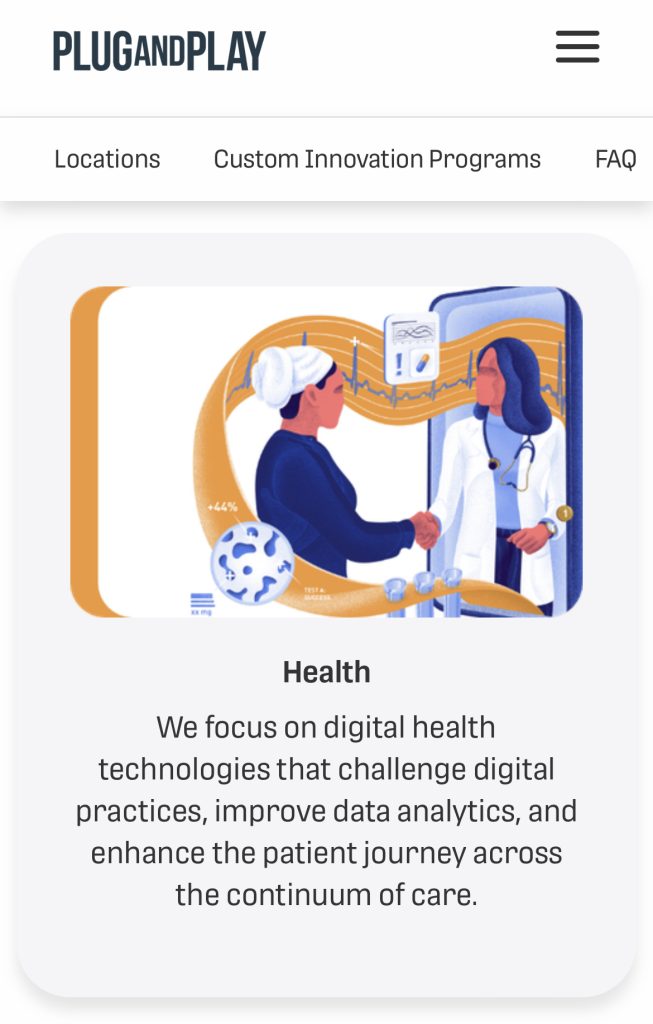
Marie Curie PhD program – health data security
Take a look…
Due Diligence capabilities and development in AI in an M&A setting
Due diligence is a critical process in mergers and acquisitions (M&A), ensuring that all aspects of a potential deal are thoroughly examined before finalizing the transaction. The integration of artificial intelligence (AI) into due diligence processes has significantly enhanced the capabilities and efficiency of this crucial phase.
AI-driven due diligence leverages advanced algorithms and machine learning to analyze vast amounts of data quickly and accurately. This technology can identify patterns, anomalies, and potential risks that might be overlooked by human analysts. For instance, AI can automate the review of financial statements, legal documents, and compliance records, reducing the time and effort required for manual analysis12.
Moreover, AI can enhance the accuracy of due diligence by providing deeper insights into the target company’s operations, market position, and potential synergies. It can also help in assessing the cultural fit between the merging entities by analyzing employee sentiment and organizational culture through various data sources3.
The development of AI in due diligence is ongoing, with continuous improvements in natural language processing, predictive analytics, and data visualization. These advancements enable more comprehensive and real-time analysis, allowing M&A teams to make informed decisions with greater confidence45.
In summary, the integration of AI into due diligence processes in an M&A setting offers significant benefits, including increased efficiency, accuracy, and deeper insights. As AI technology continues to evolve, its role in due diligence is expected to become even more pivotal, transforming how M&A transactions are conducted.
Zhangjiang Science City & GoCo Health Innovation City
Lab data and new AI algorithms combined with a team of experts
A plethora of scientific instruments, their data and development of novel AI algorithms for data insights
Sector convergence in a local setting, where the mobility industry look to dare to share with the medtech sector
A team presenting the mix of agile project management, ideation sparks, talent attraction and onboarding of the acquired skillsets⭐️
Brand the ecosystems boosting sector convergence
The future of business is digital
Integrating lab tools and workflows to aid scientists and improve outcomes
DNA and RNA sequencing and a drive for technologies enabling
Due Diligence around digital maturity
A setup of forums, all leading ahead on the digital path of biotech and life science businesses.
Data sharing as a means for catalyzing Life Science innovation
There is a lot of data out there, and a lot of hurdles to share and drive insights and new innovations. The need to catalyze HealthTech and Life Science innovation is as high as ever, and the opportunity to do so as well. We can give opportunities for Generative AI builds, we can drive Business needs with data, but most importantly we can reach out to patients to find more personalized medicines and better treatment.

Large Language Models such as chat-GPT facilitating but also driving innovation
How we see information and take it into decision making is super complex. GPTs process information with both speed, accuracy and built in Artificial Intelligence. This mix can both help us not only to translate information such as text or images, but to facilitate how we see it in alternative ways, and in addition drive how we create value in innovative ways. This house across sectors, life sciences, construction, production etc.
Sector convergence
Attrributes
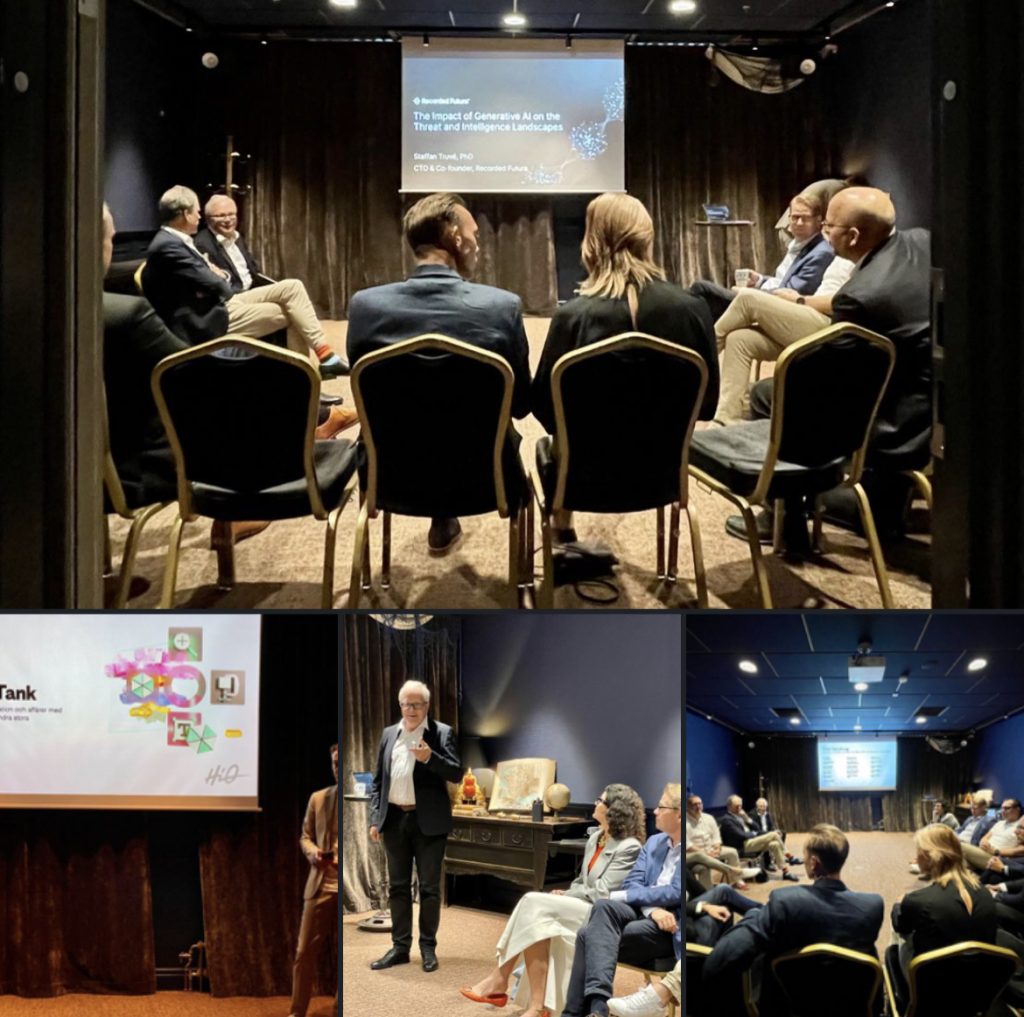
Talent Attraction and Data Analytics
How do we attract the brilliant minds in our areas of interest? And how do we ensure we can widen our ability and jointly create and capture the value from the joint forces of brilliant minds. Today the future talents visited us and we are lucky enough to be able to attract them and get to work with them. Be curious and open with your know how, then the possibility will come.
The second angle of today is the specific expertise in data stewardship and data analytics. The use of data to gain insights creating joint value for patients, researchers and businesses has only just began…
Winning the right game
Handelshögskolan School of Business, Economics and Law and their innovation management programs.
Chalmers Industriteknik focusing on innovative research and development for a sustainable society.
Two platforms providing the infrastructure, expertise and “The wide lens” (see books by Ron Adner), to Win the Right Game.

AI, new modalities in drug discovery and building a city as the center of excellence
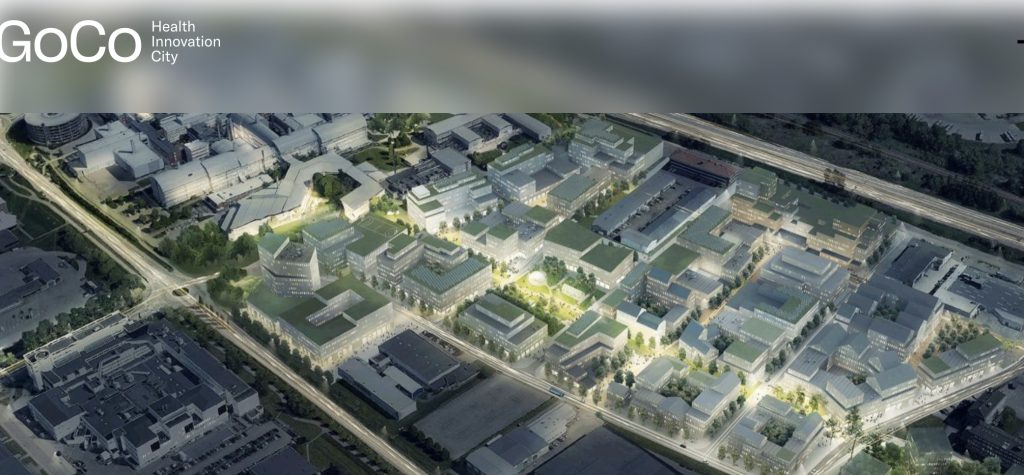
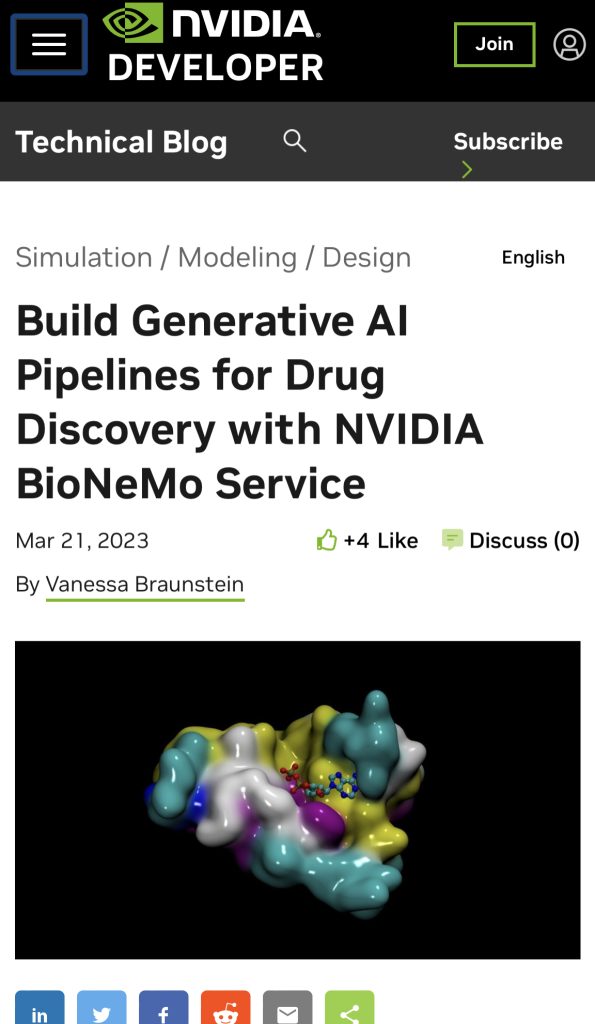
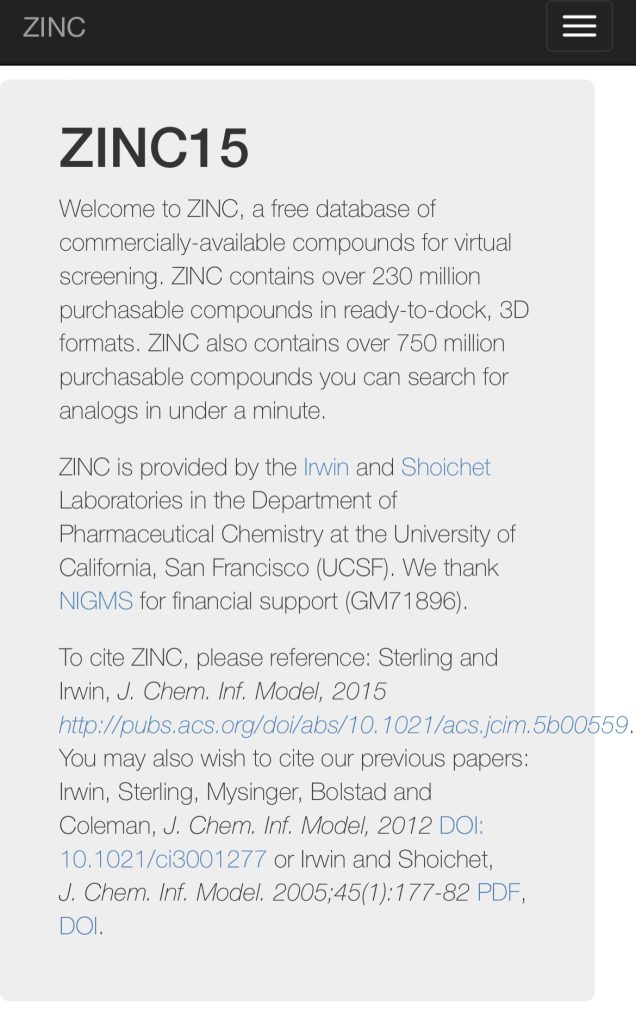
- GoCo Health Innovation City
- NVIDIA
- Dell
- AstraZeneca
- Stoichet Labs ZINC database
- Artificial Intelligence
- Marburg University & in-silico protein drug discovery
- Nobel price winners developing our new tech innovation companies
- PostDoc projects in particle accelerators turning into successful scale-ups
This is the settings being built, continuously and at a speed which is constantly increasing. As we know, the speed of development of our know how will never be as slow as it is right now. Thus, be curious and stay tuned…
Nature publication from BioSynchro
We are proud to publish one of our latest project. Together with our customers at VIVOLUX and ESP Life Sciences we publish our latest findings in cancer therapy and drug target deconvolution. The paper was published in June 2016 in the scientific journal Nature Scientific Reports. Attached is a glance of our findings.
The proteasome deubiquitinase inhibitor VLX1570 shows selectivity for ubiquitin-specific protease-14 and induces apoptosis of multiple myeloma cells. Inhibition of deubiquitinase (DUB) activity is a promising strategy for cancer therapy. VLX1570 is an inhibitor of proteasome DUB activity currently in clinical trials for relapsed multiple myeloma. Here we show that VLX1570 binds to and inhibits the activity of ubiquitin-specific protease-14 (USP14) in vitro, with comparatively weaker inhibitory activity towards UCHL5 (ubiquitin-C-terminal hydrolase-5). Exposure of multiple myeloma cells to VLX1570 resulted in thermostabilization of USP14 at therapeutically relevant concentrations. Transient knockdown of USP14 or UCHL5 expression by electroporation of siRNA reduced the viability of multiple myeloma cells. Treatment of multiple myeloma cells with VLX1570 induced the accumulation of proteasome-bound high molecular weight polyubiquitin conjugates and an apoptotic response. Sensitivity to VLX1570 was moderately affected by altered drug uptake, but was unaffected by overexpression of BCL2-family proteins or inhibitors of caspase activity. Finally, treatment with VLX1570 was found to lead to extended survival in xenograft models of multiple myeloma. Our findings demonstrate promising antiproliferative activity of VLX1570 in multiple myeloma, primarily associated with inhibition of USP14 activity.



